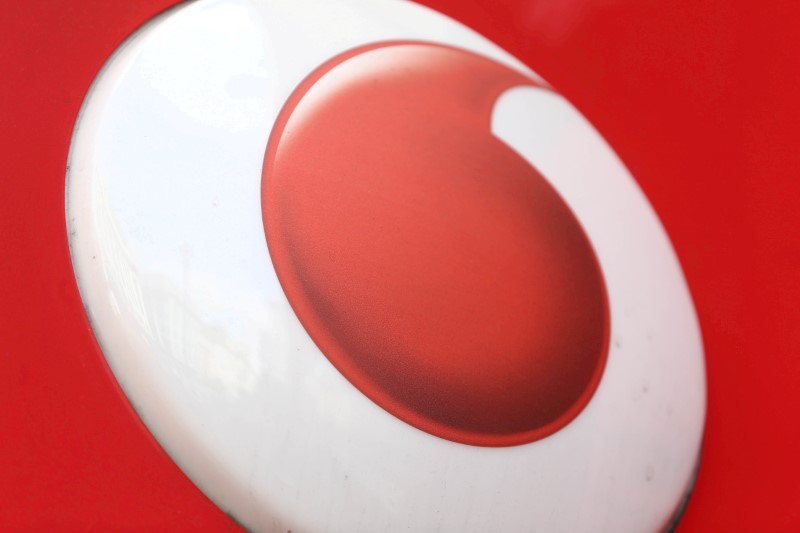By Mathieu Rosemain and Pamela Barbaglia
BARCELONA/LONDON (Reuters) - The prospects of seeing a handful of telecoms giants take control of the European market as in China and the United States look remote as hopes for a new wave of large cross-border deals quickly run into cold reality.
Vodafone's (L:VOD) talks with Liberty Global (O:LBTYA) about buying some of the cable company's assets and a $6.7 billion bid led by Australia's Macquarie Infrastructure (N:MIC) for Danish telecoms company TDC (CO:TDC) have rekindled expectations for further mergers.
However, none of them look set to transform Europe's telecoms landscape -- a collection of national markets with typically three to four operators in each.
Tough anti-trust rules, wariness over politically-charged mergers involving former monopolies such as Deutsche Telekom (DE:DTEGn), France's Orange (PA:ORAN), Telecom Italia (MI:TLIT) or Spain's Telefonica (MC:TEF) and the investments needed to upgrade networks limit the appeal of the sector.
"There is no catalyst for a mega-deal, investors don't see the synergies and see very well the integration risks of two traditional operators," said a senior French telecoms banker.
"The conditions are not yet met for these complicated deals to happen," he added.
Orange's boss Stephane Richard dampened the idea that Europe's fourth-biggest telecoms operator could tie-up with bigger rival Deutsche Telekom last week after a source confirmed in January that merger talks between the two fizzled last year.
"There is no hidden project. There is no hidden negotiation with anybody, neither with the Germans nor… with anybody else," he said.
"There is no project today that make sense in terms of value creation, in terms of political feasibility, in terms of equity story for us," he added.
LOW SPENDING
Several analysts and industry executives have long lamented the state of play in Europe, insisting the current fragmentation shrunk revenues for companies in a context of rising demand for data usage by consumers.
Europe's average revenue per user (ARPU), a key indicator used within the industry, represents a third of that in the United States and half of Japanese levels.
"You need more consolidation in Europe, you need less regulation in Europe, you need higher data usage that gets monetized in Europe," said Rajeev Suri, the chief executive of Nokia (HE:NOKIA) , one of the world's top telecoms equipment makers, at the Mobile World Congress in Barcelona.
Suri cited the relatively low European ARPU as a key factor that will explain the slow adoption of the next generation of mobile internet technology, or 5G.
A champion of competition within national markets and low prices for consumers, EU antitrust chief Margrethe Vestager would disagree.
Ever since she expressed concerns about a proposed merger of Telenor and TeliaSonera in Denmark in 2015 – leading to its collapse, Europe has not seen any big move on the M&A side.
The total value of deals in the European telecoms sector at large, including the debt of targets, halved over the last two years, according to Thomson Reuters data.
Shares of Europe's benchmark telecoms stock index fell 17 percent (SXKP) over the same period, underperforming the broader Stoxx 600 index, which rose by 16 percent.
INTERNAL DEALS
In Italy, the arrival of French telecoms maverick Iliad is expected in the next few weeks, a move favored by EU regulators in the wake of the merger of CK Hutchison Holdings and Veon's Italian businesses.
Iliad triggered a protracted mobile price war in France and intends to grab a quarter of the market share through low-cost offers, sources have said.
"Is any consolidation really relevant when the implied costs of the remedies are higher than any benefit derived from the consolidation?” said a fund manager at a French bank with a stock-picking strategy.
Still, the Vodafone-Liberty Global talks could lead to other deals within major European markets, according to several M&A bankers.
If the deal goes through, it would greatly reinforce Vodafone's presence in Germany and provide Liberty with fresh cash to spend.
"By selling EU assets Liberty will have options to do deals in the UK," a Britain-based telecoms banker said.
"Selling continental Europe means they will focus on building their UK business." Liberty controls the Virgin Media business in Britain.
Markets were also surprised by the bid for TDC, which is backed by consortium that include Danish pension funds and could be an example for Altice's (AS:ATCA) struggling French unit SFR, were it to be put on sale, several bankers said.
Yet cross-border transactions remain a distant prospect, for now at least.

"In a couple of years I think we will see more cross-border consolidation - and I think it would be good for this industry," said Marie Ehrling, the chair of the board of Nordic telecoms operator Telia (ST:TELIA).